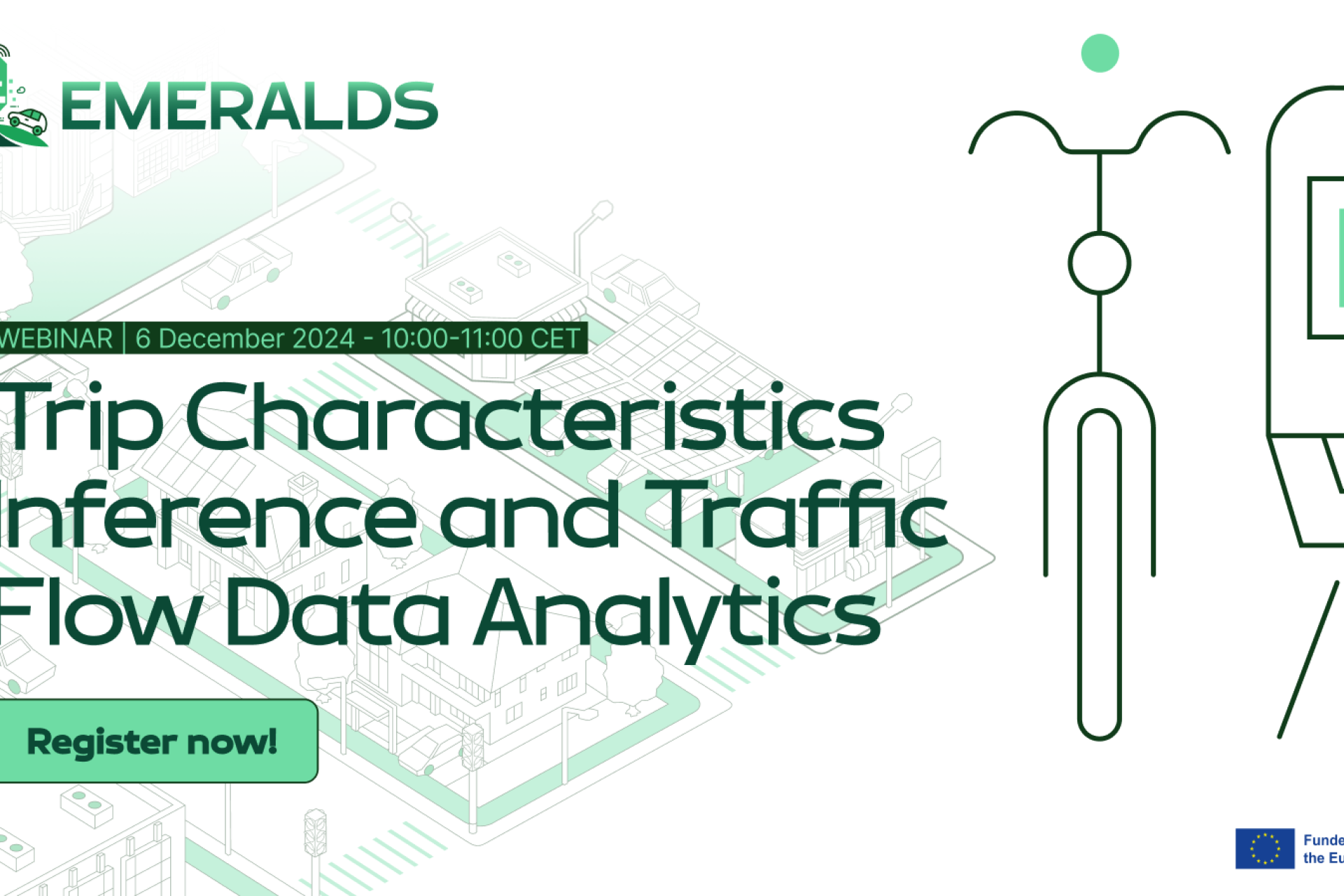EMERALDS New Webinar - Trip Characteristics Inference and Traffic Flow Data Analytics

After the first two successful webinars of the series, the EMERALDS project is organising its 3rd webinar on December 6, 2024, from 10:00 to 11:00 CET, this time based on one of the project’s technical Use Cases, specifically Use Case 3 “Trip Characteristics Inference and Traffic Flow Data Analytics”.
This new webinar will explore how advanced data analytics can optimise urban mobility, using Riga, Latvia, as a pilot city. The key topics that will be discussed are:
- Data Aggregation Challenges: Addressing the complexities of compiling comprehensive datasets on travel habits, including the validation of entry, exit, and transfer points, and the involvement of multiple stakeholders.
- Algorithm Enhancements: Discussing improvements to existing algorithms to achieve full geo-location of ticket validations and enhance accuracy.
- AI Integration: Exploring the use of artificial intelligence to infer additional trip characteristics, such as popular destinations and probability distributions, especially for trips without subsequent data points.
- Future results & concrete application of the UC3 in the context of Riga.
About EMERALDS’s Use Case 3:
As urban populations shift towards lower-density areas, cities like Riga face increased commuter traffic, necessitating efficient public transport systems. Riga (Latvia) deals with an increased number of commuters from the outskirts and neighbouring municipalities to the city as people have relocated to areas with lower population density. This outflow has a direct impact on the transportation system and creates the need for AI-driven decision-making tools for mobility planning. To optimise the transport network and its efficiency, make public transport more attractive to the user, adapt to changes and forecast future demand, real-time data analytics of travel behaviour is essential.
This webinar will explore the development of the EMERALDS toolset and its progress in the city of Riga, aimed at analysing and forecasting passenger travel behaviour to enhance public transport networks. Currently, approximately 70-80% of ticket validations (entry points) and 30-40% of exit points are geo-located. The EMERALDS project aims to improve these algorithms to achieve 100% geo-location accuracy, thereby providing municipalities and public transport providers with valuable insights into passenger travel habits and multimodal potential.